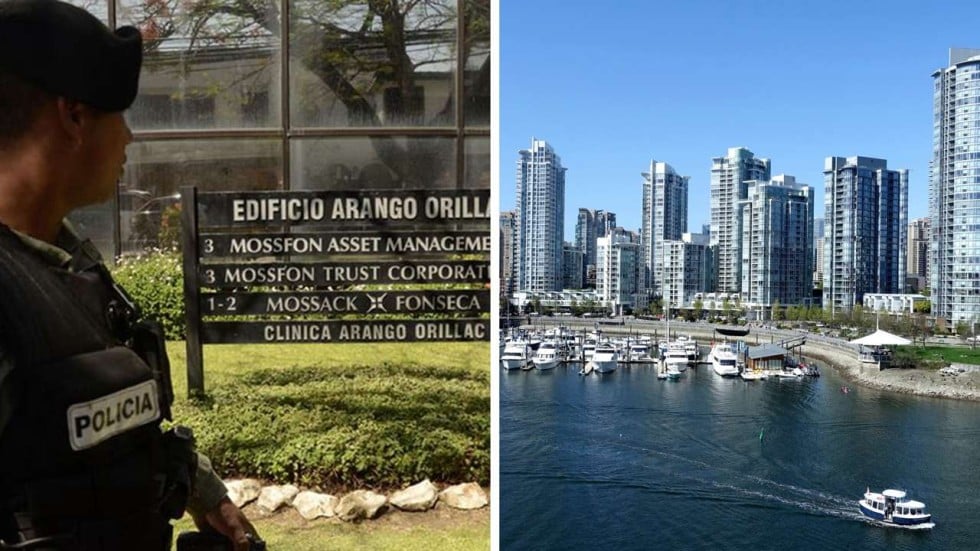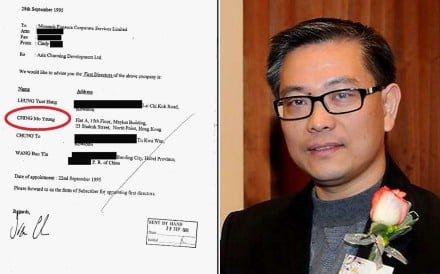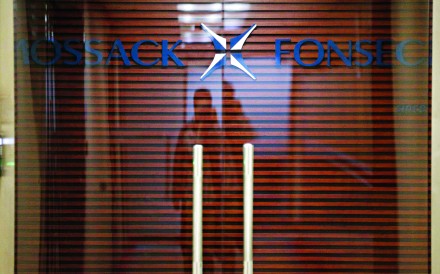Panama Papers: Vancouver is Canada’s hotspot for secret tax haven firms, with hundreds of addresses in leaked papers
The presence of Vancouver Westside addresses in leak database is more than 10 times the national per-capita norm
PUBLISHED : Wednesday, 25 May, 2016,
Vancouverites love secret tax haven companies.
So much so that Metro Vancouver addresses are about four times as likely to feature in the Panama Papers and Offshore leaks database as Canadian addresses as a whole, per capita. Their presence on this basis more than doubles that of Toronto addresses, despite that city’s status as the financial capital of Canada.
A few hours spent burrowing into the database of financial information leaked to the International Consortium of Investigative Journalists (ICIJ) reveals even wider disparities. City of Vancouver addresses are 8.2 times as likely to appear as Canadian addresses as a whole (32 addresses/100,000 population vs 3.9/100,000), while Richmond addresses (34.1/100,000) were 8.7 times as likely to appear. But the epicentre of addresses linked to these tax haven firms, at least on a density basis, is West Vancouver. Long a bolthole of the rich and famous (and/or infamous), West Van addresses appear in the database at a rate of 75/100,000 population - some 19.2 times the Canadian norm.

The ICIJ database, uploaded in a searchable format this month, is based on a vast trove of leaks from the Panama-based Mossack Fonseca law firm, which for decades helped the global rich hide their assets in offshore tax havens such as the British Virgin Islands. Also included are data from the ICIJ’s 2013 Offshore Leaks investigation. The millions of documents have revealed the secret dealings of wealthy gangsters, politicians, celebrities and sportsmen from around the world.

It’s important to note that simply being linked to an offshore company does not prove wrongdoing, by Ching or anyone else mentioned in the database. But ownership of such a firm, under no obligation to reveal its shareholders, does suggest a desire for privacy.
In the sheer number of addresses linked to offshore firms in the database, Greater Toronto narrowly edges Metro Vancouver, 382 to 375, in part due to the number of offshore firms linked to Bay Street. But when population is taken into account (Greater Toronto’s 6 million versus Metro Vancouver’s 2.5 million), a wide gap in the relative presence of such addresses emerges in the West Coast’s favour.
In those terms, Metro Vancouver is the clear leader compared to Canada’s other major cities; its rate of 15.1 addresses per 100,000 population easily outstrips runner-up Greater Toronto (6.3), as well as Calgary (4.8) and Montreal (4.4). Lagging behind the Canadian average (3.9) are Ottawa-Gatineau (2.3) and the Edmonton Capital Region (1.0).

 Of the 193 City of Vancouver addresses mentioned in the database, 87 are in the downtown peninsula, mostly business premises such as law and accountancy offices. Of the remainder, 83 are in Westside Vancouver and 23 on the Eastside, reflecting the city’s wealth divide. The Westside’s representation rate of 40.8 addresses per 100,000 population is more than 10 times the national norm. Is this also evidence of millionaire migrants bringing murky financial practices to the city? Here we have to be cautious: while it’s true that the Westside is a favoured destination for rich immigrants from China and elsewhere, it’s also the base for a lot of “old stock” Canadian wealth, to borrow a Harper-ism.
Of the 193 City of Vancouver addresses mentioned in the database, 87 are in the downtown peninsula, mostly business premises such as law and accountancy offices. Of the remainder, 83 are in Westside Vancouver and 23 on the Eastside, reflecting the city’s wealth divide. The Westside’s representation rate of 40.8 addresses per 100,000 population is more than 10 times the national norm. Is this also evidence of millionaire migrants bringing murky financial practices to the city? Here we have to be cautious: while it’s true that the Westside is a favoured destination for rich immigrants from China and elsewhere, it’s also the base for a lot of “old stock” Canadian wealth, to borrow a Harper-ism.
The database itself doesn’t tell us much about the folk behind the offshore companies, and there are limitations to the searchable parameters on the database.
What about the “Chinese names” methodology? With a little trepidation, I went through the database’s 232 addresses in the City of Vancouver, North Vancouver and West Vancouver. Of the 185 linked to named persons (as opposed to companies or other entities), 62 were linked to folk with non-Anglicised Chinese names and styling typical of the mainland. A further 44 addresses were linked to people with Chinese names that included a non-Chinese component and/or had all-Chinese styling typical of Hong Kong, Taiwan, Singapore or elsewhere. Four more were linked to multiple people who spanned both categories, or included a non-Chinese name.
That a majority of Vancouverites linked to offshore accounts are ethnically Chinese is NOT to suggest any racial tendency; consider, for instance, the relatively low proportion of Eastside Vancouver addresses in the database (7.5 addresses/100,000 population), compared to the Westside (40.8/100,000) and Metro Vancouver as a whole (15.1). Yet the Eastside has long been home to a major Chinese population.
It likely does reflect other things: that the overwhelming majority of rich folk who come to Vancouver as immigrants are ethnically Chinese, and that a large majority of Canada’s millionaire immigrants end up in Vancouver.
However, their economic behaviour – such as, say, involvement with an offshore tax haven company – should not be misconstrued as a matter of ethnicity. A rich Chinese immigrant mindful of the PRC’s wealth-export limits and scrutiny might resort to an offshore company, but this is behaviour defined by wealth and circumstance, not race. What should be obvious instead is that regardless of a Chinese name or ethnicity, the rich like to keep their secrets.
*
The Hongcouver blog is devoted to the hybrid culture of its namesake cities: Hong Kong and Vancouver. All story ideas and comments are welcome. Connect with me by email ian.young@scmp.com or on Twitter, @ianjamesyoung70.




No comments:
Post a Comment
Comments always welcome!